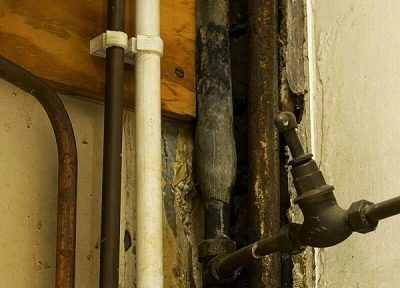Corrosion is something that we can identify, but most of us do not know how it comes to be. We just know that when something is corroded, it probably needs to be replaced or at least cleaned. Whatever the case may be, corrosion is not something you want in any situation. When it comes to plumbing and mechanical parts, corrosion can cause a ton of trouble. Real Seal manufactures superior mechanical components and wants you to know how to prevent corrosion from causing a fuss with your project or home.
What is corrosion?
Corrosion can be widely defined as the “degradation of material through contact with its environment.” This essentially means that almost any type of material can be a victim of corrosion. The “environment” mentioned in the definition means that anything from moisture, temperature, acidity, and oxygen could create corrosion. Many people only think of corrosion as happening when something is consistently wet. Although that is a common cause, it is only one of many environmental factors that can cause the degradation of a material. There are slight variations in the type of corrosive process for different materials, but the outcome is typically the same. Unprotected material can be broken down over time, compromising its integrity. In our daily lives, we see this with pipes and other metal materials most often.
How to prevent corrosion
One factor of corrosion is contact between two different types of metal. Some metals are weaker than others, which is referred to as being less noble. One particularly weak metal is stainless steel. In the case of stainless steel valves, graphite is commonly used to create a barrier to stop the corrosion. This is one of the biggest preventative measures against corrosion: always make sure you have a barrier to slow down corrosion between two metals. Galvanization is a common practice where a thin layer coats a metallic part to protect it from this stress. Another way to prevent corrosion is to design ample space and drainage around an area. If you create a way for less environmental impact on pipes and other metals, then they will last longer. Controlling the environment is most effective. Controlling moisture, oxygen, acid, and temperature can help keep corrosion at bay. Finally, if you want to prevent corrosion, then you have to maintain the material. Consistent cleaning and replacing will prolong the life of many materials.
How to clean corrosion
Since metal is the most common material that corrodes, here are some tips for removing the corrosion. This will hopefully increase the lifespan of these metals.
- White vinegar is one of the oldest cleaning agents around. Your great grandparents probably even used this stuff. The cleaning power is in its high acidic profile. Soak corroded material in white vinegar for 24 hours and the rust will melt away.
- Baking soda isn’t only useful for making cookies. It is a powerful cleaning agent as well. You can’t just use the powder, however. You need to create a paste by mixing baking soda and a small amount of water. This paste can then be applied to corroded material for a few hours before scrubbing it away.
- A mixture of lemon and salt has the same acidic, cleaning properties as white vinegar. You need to create a paste using lemon juice and salt for the most effective outcome.
- Potatoes have also been proven to help clean rust. You may not want to waste a perfectly good potato, but it can really help. Cut a potato in half, and then apply salt to the potato. Scrub the inside of the potato over the rusted area to clean it.
- Sandpaper is a useful tool to help get off the stubborn corrosion. This won’t clean the rust on its own but can help loosen it up with one of the other options above.








